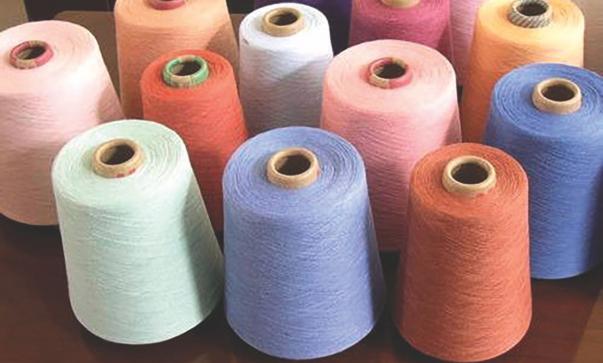Yarn prices slide on supply glut

The fall in yarn prices by at least 12 percent in the last two months has made Bangladesh's 430 local millers uneasy, industry insiders said.
Between June and July, the widely consumed 30 carded yarn sold between $3.40 and $3.50 a kilogram. But from November onwards the prices of the same yarn dropped to $3.05 a kg.
If the trend continues, the stock of yarn, which is the main raw material for finished apparel items, may pile up, putting the $8 billion primary textile industry under threat.
Easy availability of cheap Indian yarn and lower prices of raw cotton worldwide due to the US-China tariff war are to blame for the sliding yarn prices.
“The prices of yarn are falling everyday because of oversupply,” said Monsoor Ahmed, secretary of Bangladesh Textile Mills Association, the platform for the spinners and weavers.
The oversupply of Indian yarn has been worsening the situation, he said, adding that there is a possibility of yarn's inventory piling up.
The Indian spinners can sell yarn at a cheaper rate because they have their own raw cotton, said Razeeb Haider, managing director of Outpace Spinning Mills Ltd, a yarn supplier.
“A lot of the Bangladeshi knitwear manufacturers are importing the cheaper Indian yarn,” he added.
The supply of yarn from both the domestic and Indian market is very high at present, so the prices have decreased between 10 cents and 15 cents per kg, said Bakhtiar Uddin Ahmed, general manager at Fakir Apparels, a Narayanganj-based garment maker.
The price difference between Indian and Bangladeshi yarn is 10 to 15 cents per kg, said Ahmed, who procures up to 40 percent of the yarn required by his factory from the neighbouring country.
The yarn prices have dropped because of the fall in cotton price worldwide, said Momin Mondol, managing director of Mondol Group.
The total demand for yarn is more than 21 lakh tonnes per year.
Of the demand 70 percent is met by local millers and the rest is imported, mainly from India, China, Vietnam and Pakistan.
Bangladesh's 430 spinners can supply nearly 90 percent of the demand for yarn from the knitwear sector and 35 percent from the woven sector.
As a result, Bangladeshi woven garment manufacturers import fabrics worth more than $6 billion from countries like China, India, Vietnam and Pakistan.
